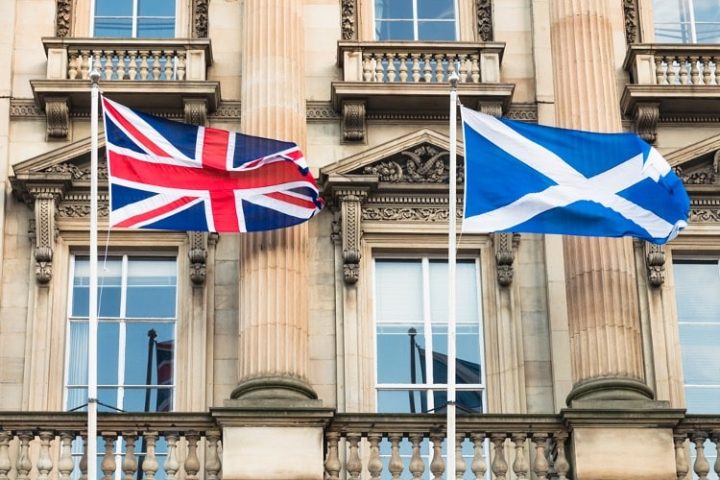
On Tuesday, Scottish First Minister Nicola Sturgeon issued a statement to the U.K. Parliament announcing plans for a new referendum asking citizens if their nation should declare its independence and secede from the United Kingdom. Sturgeon hopes to hold the referendum in October of 2023.
Sturgeon, now the longest-serving first minister in Scottish history, has led the pro-independence Scottish National Party (SNP) since 2014. She has vowed to take legal action in order to ensure a vote should the U.K. attempt to stop it.
The first minister made the announcement as the Scottish government published the “Scottish Independence Referendum Bill,” which will be sent to Scotland’s Supreme Court to seek clarity on whether the Scottish Parliament has the power to legislate such a referendum. That court, based in Edinburgh, will determine if that bill meets constitutional muster.
Independence was last voted on in 2014 when the “Yes Scotland” campaign lost its quest for an independent Scotland by 55-45 percent. But things have changed greatly since that referendum, with the U.K. voting to leave the European Union in 2016, which was finally accomplished in 2020.
Polls conducted this year show similar results regarding independence as the 2014 election.
Many Scots were also angered by Prime Minister Boris Johnson’s handling of the Covid-19 pandemic. Sturgeon plans to write Johnson for permission to hold a consultative referendum in advance of the planned October 2023 vote.
“Independence is about equipping ourselves to navigate the future, guided by our own values, aspirations and interests,” Sturgeon said.
“Now is the time — at this critical moment in history — to debate and decide the future of our country. Now is the time to get Scotland on the right path — the path chosen by those who live here. Now is the time for independence.”
Sturgeon, for one, no longer wishes for Boris Johnson or any other U.K. prime minister to make rules for Scotland. Johnson and his Conservative Party are strongly against Scottish independence, insisting that the matter was decided in 2014.
“What I am not willing to do, what I will never do, is allow Scottish democracy to be a prisoner of Boris Johnson or any prime minister,” the first minister stressed.
This point was also stressed in the SNP’s 2022 manifesto, which states, “The people of Scotland have the right to decide our own future and the people best able to decide how Scotland is governed are the people who live here.”
Johnson was deeply involved in the G7 Summit taking place in Bavaria and has not yet commented publicly on the new referendum. However, a spokesman told reporters that now was not the time to be considering Scottish independence.
“Our position remains unchanged: Both [the British government’s] and the Scottish government’s priority should be working together with a relentless focus on the issues that we know matter to people up and down the country,” the spokesman said.
The spokesman did promise that Johnson’s teetering government would closely study the matter: “A decision has been taken by the first minister so we will carefully study the details of the proposal and the Supreme Court will now consider whether to accept the Scottish government’s Lord Advocate’s referral.”
Johnson survived a no-confidence vote brought by his Tory brethren earlier this month. He has been plagued by the “partygate” scandal after reports surfaced that Johnson and other government officials held gatherings despite the country’s strict rule against such frivolity during the height of the Covid-19 pandemic.
Sturgeon believes that the Scottish Parliament “has a clear, democratic mandate” to offer Scotland another chance to choose for independence, especially given the massive changes to the U.K. since 2014.
“The UK and Scottish Governments should be sitting down together, responsibly agreeing a process, including a section 30 order, that allows the Scottish people to decide. That would be the democratic way to proceed,” Sturgeon declared.
Thus far, the Johnson government has been reluctant to issue a “section 30” order, which would give Scotland’s parliament the go ahead to schedule a referendum.
“The issue of independence cannot be suppressed. It must be resolved democratically. And that must be through a process that is above reproach and commands confidence,” Sturgeon said.
And that independence is really the issue, although it would be a shame for Scotland to assert its independence from the U.K. only to join the European Union.




